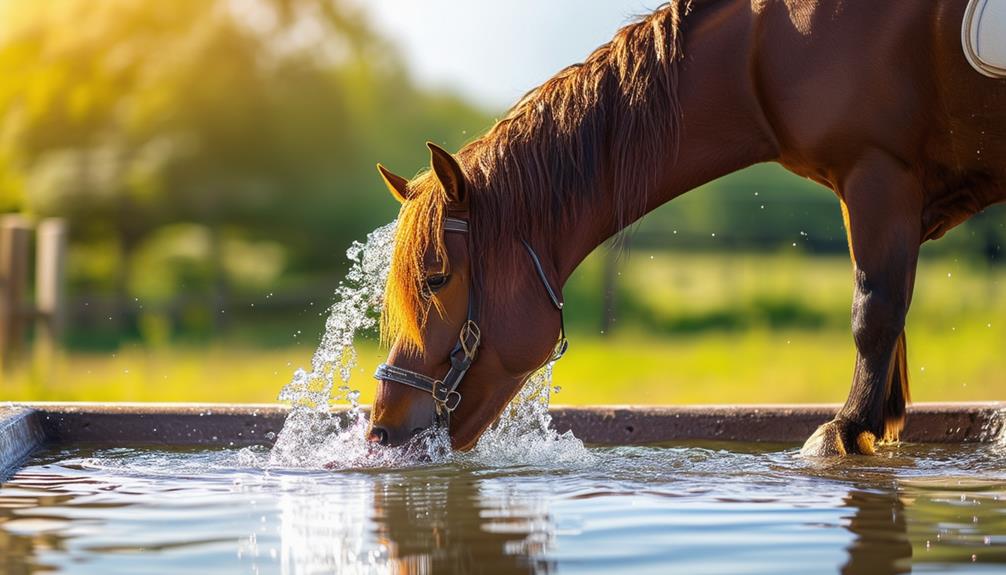If you've noticed your horse's water bucket remaining untouched more often lately, there might be a cause for concern. Ensuring your horse stays hydrated is vital for its well-being, but it goes beyond just providing water. By understanding the factors that influence your horse's hydration levels, you can take proactive steps to keep them healthy and performing their best. Let's explore how you can optimize your horse's hydration and why it's crucial for their overall health and happiness.
Importance of Hydration

Ensuring your horse stays properly hydrated is crucial for maintaining their overall health and performance. Developing a hydration schedule and tracking their water intake is essential. By monitoring how much water your horse consumes, you can prevent dehydration, which is vital for their well-being.
Dehydration not only impacts their physical health but can also affect their performance and behavior.
Setting up a hydration schedule involves offering clean, fresh water at regular intervals throughout the day. By tracking your horse's water intake, you can ensure they're drinking enough to stay properly hydrated. Adequate hydration has numerous health benefits for your horse, including aiding digestion, regulating body temperature, and supporting joint health.
Preventing dehydration through proper hydration management is a key aspect of horse care. By incorporating a consistent hydration schedule and monitoring their water intake, you can help your horse maintain optimal health and performance levels.
Water Requirements for Horses
To maintain optimal health and performance, it's essential to understand the water requirements of horses. Water quality is crucial for your horse's well-being. Ensure that the water provided is clean, free from contaminants, and at a suitable temperature.

